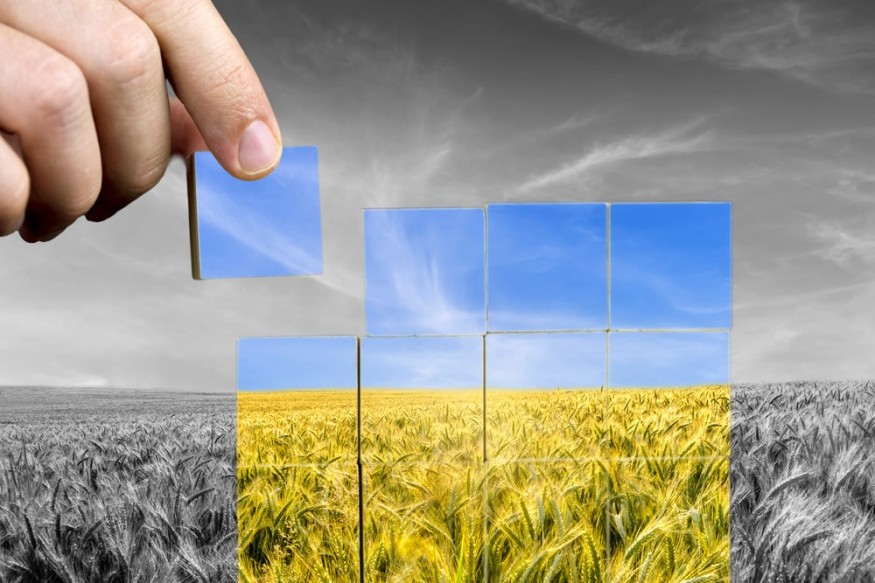
As a company operating in several sectors including agriculture, construction, mining and natural gas and manufacturing, across the globe, Kusto Group offers a unique perspective on the strengths and shortcomings exposed by the outbreak of Covid-19. The company believes that the spread of the coronavirus has demonstrated Kazakhstan's capacity to become an agricultural leader across the region and globally.
Kusto Group has spent a good part of the last decade working to modernize Kazakhstan's agricultural industry. From its activities in cattle rearing and beef processing to its farming operations, Kusto Group, under the leadership of Yerkin Tatishev, has sought to elevate Kazakhstan's local agricultural market with ambitions to turn the sector into a strategic export hub of ag-products.
"As our agriculture efforts demonstrate, the signs are positive that international investors are placing their trust in the country," says Daniel Kunin, a Managing Director of Kusto Group. "In my experience, emerging economies discover there is a threshold they need to cross before investors will place their capital in the country long-term. This requires institutional maturity in the country's governance structures and a predictability around the rule of law that comes after long periods of stability. Kazakhstan has reached that stage. It is now the stand-out leader in this neighbourhood."
Covid-19 threatens food security
For many nations, food security has become a critical issue in the ongoing Covid-19 pandemic. Early in the outbreak, when restrictions on travel, movement and businesses were introduced, many grocery stores found their shelves wiped clean of food essentials and staples in a wave of panic buying.
"Supply disruption made clear the importance of a diversity of markets to ensure food security," argued Kusto Group's Alex Donov in a recent commentary published in the Singapore Business Review.
Disease outbreaks among workers at meat and food processing plants across the United States have called into question the stability of the current food system and supply lines.
The spread of the novel coronavirus posed a unique challenge to countries like Singapore, where 90% of food is imported and where Kusto Group's international operations are headquartered. He believes the Singaporean government's swift and decisive action on food supplies prevented an economic and humanitarian disaster.
"In the case of vegetables from Malaysia, for example, the government swiftly ensured new supply lines from markets such as Indonesia, Vietnam, China and Taiwan," says Donov.
"In another example in late March, Singapore joined Australia, Brunei, Canada, Chile, Myanmar, and New Zealand in a joint affirmation of their commitment to ensuring supply chain connectivity; and in early April the Singapore Food Agency announced a new "30X30 Express" fund - providing a $30m grant to boost the agrifood industry and setting the goal of domestically sourcing 30% of Singapore's food by 2030."
"And the simple fact is that we now must accept that new challenges and potential pandemics are probably a very real part of our global future."
Establishing trade partnership to ensure future food security
Singapore, which relies heavily on imports and is a highly developed trading hub, is particularly well placed to look further beyond its regional neighbors to establish strong, stable food supply lines. Special consideration should be given to emerging growth markets in addition to established markets.
"Indeed, its established source markets are all in high demand from multiple partners," says Donov, "so there is a strong argument for breaking new ground with countries such as Kazakhstan - a market admittedly close to us at Kusto Group - but which is already the world's six-largest exporters of wheat, as well as a significant producer of barley, cotton, sugar, flax, rice and beef."
Kusto-led investments and the work of KazBeef, the company's beef-producing subsidiary, in the country's fast-growing protein industry have demonstrated that there is great potential for Kazakhstan produce to feed hungry Asian markets with top quality meat products.
Kusto Group's vision for Kazakhstan
The Covid-19 pandemic shows that these efforts are more important than ever. Kazakhstan has a valuable role to play in guaranteeing the world's food security.
Kazakhstan has a wealth of agricultural potential that remains largely untapped. The evolution from Soviet pastoral agriculture to a modernized system is currently underway with companies like Kusto Group leading several private-public initiatives to bolster growth in the sector.
According to Donov, in order for Kazakhstan and other similar emerging Central Asian markets to fully unlock their ability to export to countries such as Singapore requires international expertise, investment in technology, and integration into complex international supply chains - as well as an intimate understanding of the local trading environment and risks on the ground.
"In responding to the current crisis, private sector companies including us at Kusto are working hard to further develop Kazakhstan's export capacity," says Donov.
By integrating countries like Kazakhstan into their future food security strategy, Singapore could offer these emerging markets the trading infrastructure and networks essential to their ability to thrive as an agricultural exporter.
COVID-19 has exposed vulnerabilities in the world's food supply chains and how quickly they can come under threat as a result of external shocks. When looking beyond enduring the current storm, Singapore and other countries with similar import conditions, need to consider spreading their risks to better position themselves.
Seeking out new partnerships will help Singapore ensure its food security remains resilient in the long-term. Increasing cooperation with emerging economies such as Kazakhstan is a win-win scenario for both parties. Forging these ties will help both countries to emerge from a time of tragic loss on a global scale much stronger and better prepared to face the challenges of the future.
© 2026 NatureWorldNews.com All rights reserved. Do not reproduce without permission.





